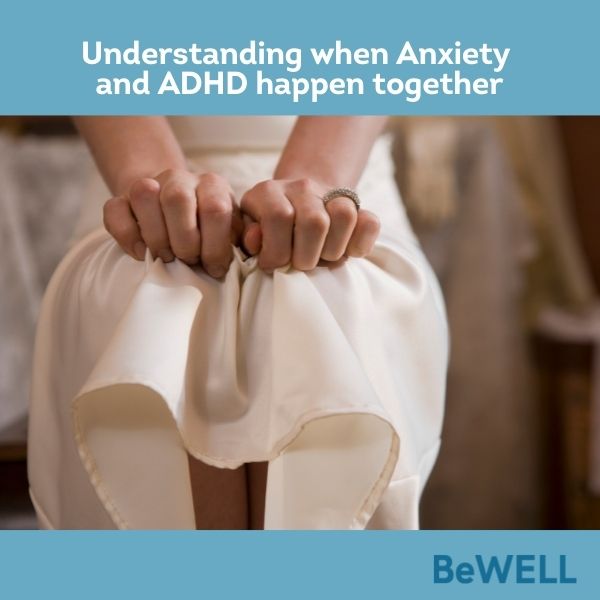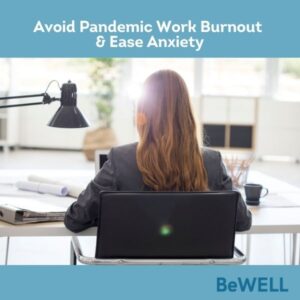Many Americans report suffering from Attention Deficit/hyperactivity disorder (ADHD) and even more report suffering from anxiety. Both are mental health conditions we have heard quite a bit about but I want to highlight the difficulty for those who experience both and how they feed into one another, intensifying the experience of both. Let’s break down what anxiety and ADHD are, how they manifest, and how it may look like externally.
What is Anxiety?
Anxiety is very common and is part of our body’s natural response to stress. It presents as an intense and persistent worry about everyday experiences. Anxiety can manifest physically as sweating, shallow breathing and a tense rigidity in one’s body in addition to many other physical symptoms. Anxiety can also be experienced intellectually and that can look like anticipatory anxiety (hello first day of school), a sense of impending doom and believing things will never improve.
What is ADHD?
ADHD is a neurodevelopmental disorder that often begins in childhood extending into adulthood. ADHD is commonly experienced as difficulty focusing, forgetfulness, hyperactivity and inattention. Due to the way ADHD contributes to concentration and memory issues, ADHD sufferers commonly report feeling their ADHD impacted their self-esteem, their mood and their relationships.
What do anxiety and ADHD look like together?
Many people who experience both anxiety and ADHD state that one can increase symptoms of the other. ADHD makes people unfocused and a prolonged loss of focus can cause increased anxiety about how to complete the task. People who endorse ADHD commonly report short term memory and anxiety ( or anxiety attacks) which affects one’s working memory, leaving impacted individuals in a soupy mess of anxious, unfocused confusion about a path forward. People with ADHD might find it hard to maintain routines due to short term memory issues and distractibility, and when anxiety creates activation – keeping to that routine feels extremely difficult. The rising sense of doom and failure creates a disconnect between a person’s mind and body, moving them further from the task at hand. This dread for the future commonly impacts the ability to get deep, quality sleep and those who are tired are more prone to distraction, stress and worry. ADHD sufferers are trapped in this loop and often struggle with lowered self esteem which can impact their confidence thus making them anxious about their ability to succeed.
It is common for people to develop negative coping skills to handle the back and forth between their conditions. The most common negative coping skill is perfectionism. In order to compensate for their inherent distractibility, patients feel they need to work doubly as hard to “make up” for concentration issues that will crop up at some point. And perfectionism creates anxiety by producing unrealistic expectations for achievement. Round and round they go, stuck between ADHD and anxiety even in their coping skills.
Emotional impact of loop
There is an expectation, particularly as you reach adulthood, to manage your life with ease. This is not possible for every person and can result in fear and shame for those who suffer with anxiety and ADHD. They feel at times they are failing at life or aren’t “adult” enough or they should have grown out of their ADHD. An inflated sense of worthlessness is common. This intense feeling impacts people’s self-worth and self-esteem. As a result, those with lowered self esteem do not engage in social activities as often as those without.
How to get some relief
My biggest tip for relief is going to be seeking a relationship with a therapist who can help you first separate your anxiety and your ADHD symptoms. My next tip, after understanding how your symptoms contribute to one another, is creating routines for situations where your ADHD is often experienced. If you most commonly experience escalation at work, building routines with small measurable goals at work. And my last tip is to create a practice of self acceptance. Anxiety and ADHD are part of who you are and this is unchanging. Find ways to accept that bad days will happen (even to perfect people on Instagram), and that one bad day does not predict your future. It’s just one bad day.
If you are struggling with stress or anxiety in New York, you are not alone and a Be.WELL. Therapist is here to help. A Be.WELL. Therapist can help you ease your stress and take control of your mental well being. A Be.WELL. Therapist is available in both Midtown, NYC and Hoboken NJ.



